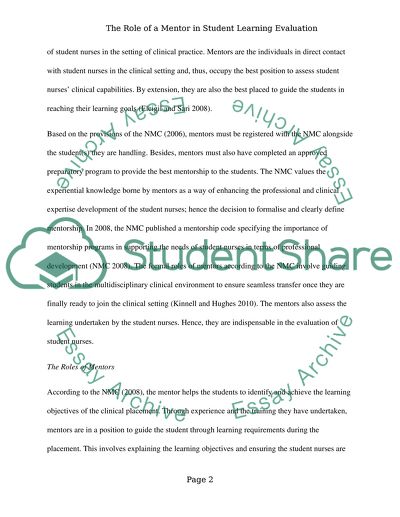Cite this document
(“Role of the Mentor When Evaluting Student Learning Essay”, n.d.)
Retrieved from https://studentshare.org/education/1440819-role-of-the-mentor-when-evaluting-student-learning
Retrieved from https://studentshare.org/education/1440819-role-of-the-mentor-when-evaluting-student-learning
(Role of the Mentor When Evaluting Student Learning Essay)
https://studentshare.org/education/1440819-role-of-the-mentor-when-evaluting-student-learning.
https://studentshare.org/education/1440819-role-of-the-mentor-when-evaluting-student-learning.
“Role of the Mentor When Evaluting Student Learning Essay”, n.d. https://studentshare.org/education/1440819-role-of-the-mentor-when-evaluting-student-learning.


